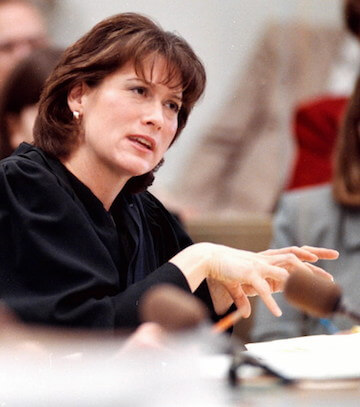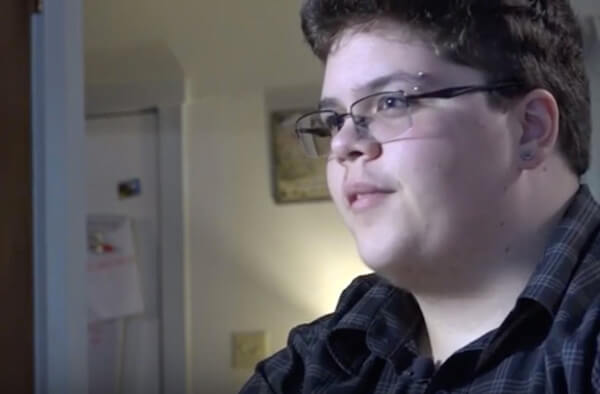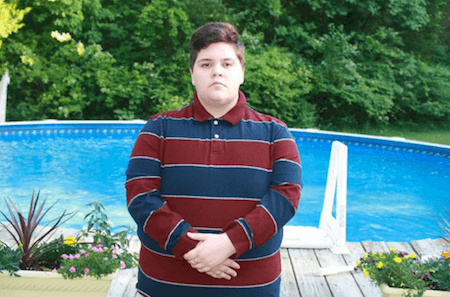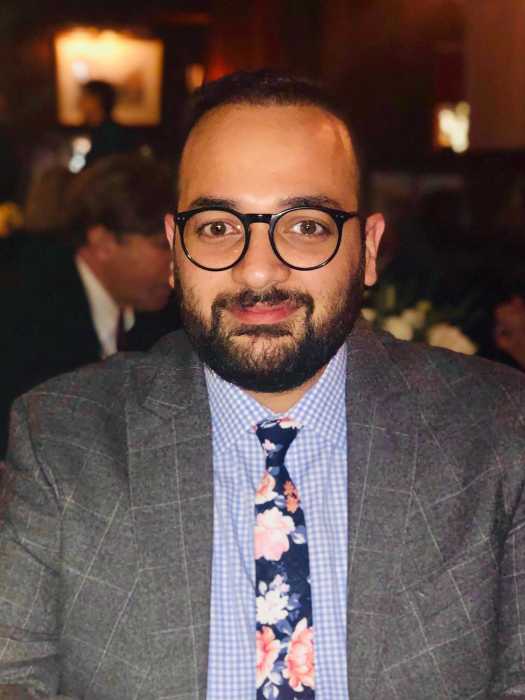At a marathon oral argument lasting well over two hours on Monday, a sequel to similar blockbuster 2018 and 2021 religious liberty cases again called into serious question whether the Supreme Court of the United States will leave intact civil rights protections designed to shield the LGBTQ community from targeted discrimination and refusals to provide services in the public marketplace. While the question presented this time is technically limited to one of free speech, religiously-motivated objections to recognizing civil marriage equality clearly were again at the center of this dispute.
303 Creative LLC v. Elenis finds itself before a Supreme Court whose membership has significantly shifted to the right since a slim majority of its justices heralded nationwide marriage equality in 2015, a landmark win that Congress and President Joe Biden now feel is threatened enough to enact preemptive statutory codification, especially after the retirement of LGBTQ rights champion Justice Anthony Kennedy in 2018 and the untimely death of liberal icon Justice Ruth Bader Ginsburg in 2020. In every case with religious liberty implications on the merits docket since Justice Ginsburg was replaced by Justice Amy Coney Barrett, the new 6-3 supermajority has stood solidly and ideologically together, and that outcome seems all but certain again here. Without outright overruling, they have repeatedly added flies in the ointment of the principle, announced by the late conservative darling Justice Antonin Scalia in a seminal 1990 ruling, that a law may constitutionally burden religion if it is facially neutral and generally applicable.
The unusual procedural posture of this case repeatedly bedeviled the justices in the hearing, as there is not really any concrete factual record from a lower court for them to review, but rather only a set of stipulated facts. In truth, Christian graphic designer Lorie Smith did not even have a wedding website business when she first brought a pre-enforcement proceeding seeking judicial permission to flagrantly violate Colorado’s Anti-Discrimination Act. Only one question from Justice Clarence Thomas, at the very beginning, concerned the typically determinative doctrines of standing and ripeness, though, so it appears those jurisdictional off-ramps to a resolution on the merits will indeed be brushed aside.
In any event, the lack of any actual set of facts led to an endless onslaught of hypotheticals for the attorneys arguing to attempt to unravel. Kristen Waggoner from Alliance Defending Freedom, representing Smith, essentially robotically regurgitated her talking points about the injustice of compelled speech no matter the specific question posed to her, rather than engage much with the ugly ramifications of a win for her client. Colorado Solicitor General Eric Olson and Principal Deputy Solicitor General of the United States Brian Fletcher separately defended the constitutionality of Colorado’s public accommodations law.
Justice Ketanji Brown Jackson, only several months into her tenure as the first Black woman ever on the Supreme Court, asked perhaps the most memorable line of questioning of the day. She evoked the holiday season with a scenario about a racist shopping mall Santa bent on recreating a nostalgic Christmas of the 1940s, akin to the one we might think of from the movie “It’s A Wonderful Life,” where no children of color can get in line for pictures. Justice Samuel Alito tried to flip that situation on its head with a question about the legality of a Black Santa repudiating children dressed in Ku Klux Klan robes.
The long history of acrimonious battles over full LGBTQ participation in the civic life of the United States, and the intersection of those skirmishes with core First Amendment principles, was laid bare when basically the only two precedents cited repeatedly as arguably relevant by either side were Hurley v. Irish-American Gay, Lesbian and Bisexual Group of Boston and Rumsfeld v. Forum for Academic & Institutional Rights. These 1995 and 2006 Supreme Court rulings, respectively, concerned whether organizers could refuse to allow an LGBTQ group to march in the South Boston St. Patrick’s Day parade and if the federal government could withhold funding from a group of law schools refusing to allow military recruiters access to their students during the era of the discriminatory “Don’t Ask, Don’t Tell” policy.
Justices Elena Kagan and Sonia Sotomayor honed their questioning continually on the cookie cutter nature of wedding websites, typically known more for disclosing the hotel discount code an attendee will need and previewing the vegetarian option at receptions, and whether an objective observer could reasonably construe the designers of these websites as endorsing or celebrating the marriages therein. At another moment, Justice Sotomayor recalled the famous “skim-milk marriage” comment made by Justice Ginsburg at another argument in 2013, saying Smith wants “to give gay couples a limited menu, not a full menu.”
Finding five votes for the State of Colorado to emerge victorious would almost certainly have to involve Chief Justice John Roberts and Justice Brett Kavanaugh, as Justices Thomas, Samuel Alito, Neil Gorsuch, and Barrett have all previously or tentatively endorsed in other cases the most extreme theories of religious liberty. Chief Justice Roberts and Justice Kavanaugh, though, seemed more sympathetic to and concerned about the plight of Smith, with Kavanaugh at one point declaring “the case comes down to a fairly . . . narrow question of . . . how do you characterize website designers.”
Jack Phillips, the Colorado baker who became famous for his analogous 2018 Supreme Court case, traveled to Washington and availed himself to the crowd and media waiting outside the Court, reminding them of his case’s story and the latest lawsuit he finds himself defending. During the argument, Justice Gorsuch described Phillips as being forced to undergo “re-education” by the State of Colorado to alter his beliefs.
A decision must be released by the Court by the end of June 2023, but given how early this case has been argued in the Court’s year, it could also come much earlier in the winter or spring.



































